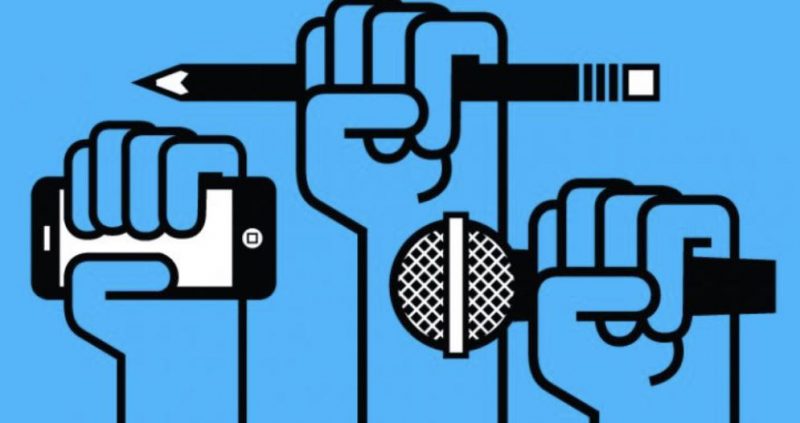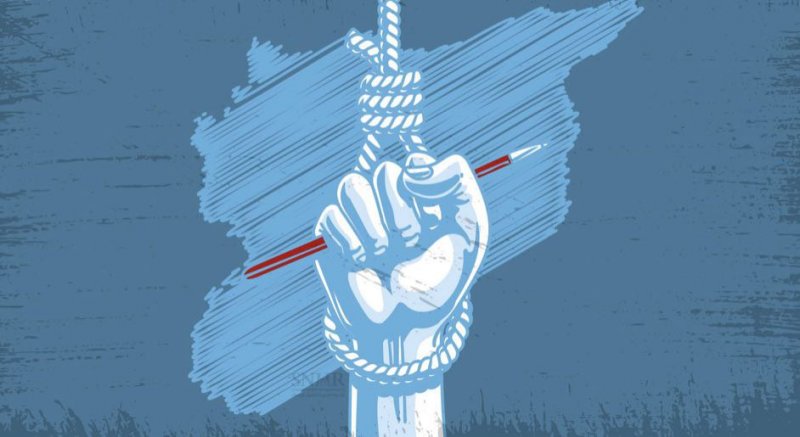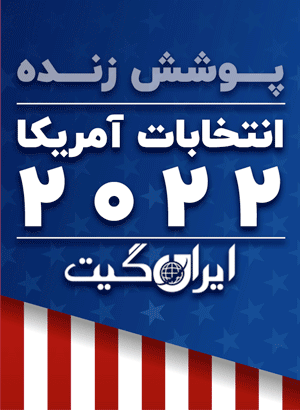This is a classified advertisement.
This is a classified advertisement. According to Iran Gate’s report, every day we witness that several journalists of domestic media are arrested by political police, and this seemingly endless process is a constant threat to a less privileged group who are less fortunate in terms of job benefits, facing a multitude of threats from job insecurity to mental instability under the shadow of constant threats of arrest, imprisonment, and political trials.
Imagine Mehdi Baik, the editor-in-chief of Etemad newspaper, being arrested solely on charges of pursuing the situation of two of the recent protest detainees who unfortunately were executed. Only God knows what he goes through behind the high walls of Evin prison in the interrogation room and solitary confinement. Like his colleagues in prison, he has been solely occupied with his duty of informing and enlightening, but apparently this duty conflicts with the duty of those who are against informing and enlightening.
Journalists’ Trade Union
The Iranian Journalists’ Trade Union is a nationwide union of journalists in Iran, which was established in Mehr month of 1997 after the arrival of the reformist government.
However, Omar’s support for his members is not very reliable, as on July 4, 2008, this association was dissolved by the Administrative Court due to the weak foundations of its governance.
The administrative office of the Journalists’ Guild of Iran, which had been sealed by the Tehran Prosecutor’s Office on August 4, 2009, was unsealed on December 29, 2010, so that the Housing Cooperative of the Association could continue its administrative activities. However, according to the statement of the board of directors of this association, the activities of the Journalists’ Guild of Iran, especially its secretariat affairs, such as renewing the validity of internal and international membership cards, unemployment insurance, and the activities of the membership and welfare committees, are still not possible until further notice.
Reopening of the Association
Ali Jannati announced on 1 Esfand 1392 that the problem of the Iranian Journalists’ Guild has been resolved, allowing it to continue its activities. The guild was closed in the previous government based on a complaint from the Ministry of Intelligence, ordered by Tehran’s prosecutor, Saeed Mortazavi. With the withdrawal of this complaint, there is no legal ban on its activities. It has been decided that the journalists hold a general assembly and elect the new board of directors. Prosecutor Mohseni Ejei also said that if the guild does not engage in political activities, it can resume its activities.
But what is meant by political activities? These interpretations, which can be subject to any kind of interpretation and accusation based on security readings, are mostly a precondition for not carrying out the duties of the guild, which is essentially to support its members and even non-member journalists to have a license to operate.
It is quite clear that in the prevailing security environment in society, no miracles are expected from this guild. However, in the least possible way, they can be the voice of their fellow journalists.
This model of deprivation and victimization of journalists may make them an easy target for political policing, as the first group on the arrest list, in order to create fear and achieve artificial security calmness.
Security from irresponsible editors
There were not enough responsible editors who faced the arrest and serious security charges of their colleagues during these days. Except for a few vague reactions and disclaimers, we did not see any further follow-up from them. For example, the editor-in-chief who sat in a live television program to criticize and label the representative of one of the most extreme political factions and his affiliated movement repeatedly during the program.
But when Rouhani, the opposing party in the debate, accused two journalists and their colleagues who were arrested for preparing a report for his newspaper of espionage, it is natural that without the slightest professional support, the cost of arrest and serious charges for the security and judicial apparatus is greatly reduced.
The future of journalism in the country
Print media and the modern state are considered imported phenomena that the lifespan of the modern state in Iran does not reach 100 years. Perhaps for this reason, these two phenomena have not been able to integrate with our historical and social fabric as they should. The rise and fall of governments and the relationship between the people and the government can be understood from this perspective. In the meantime, the relationship between the media and the government has also been complex, sometimes moving in harmony, sometimes in conflict, and sometimes one being ahead while the other lags behind.

A review of the history of the media in our country shows that whenever we have witnessed the consolidation of power and the concentration of authority in the central government, the media has declined. And whenever the central government has weakened and civil society has strengthened, the role of the media has become more prominent. From this history and these ups and downs, what can we learn for today? In other words, what lessons does this past have for our present and future?
It seems that it is from this very experience that we are witnessing the decline of the role and influence of privately-owned media. In other words, today, most influential media outlets, which have a greater reach compared to others, are somehow dependent on certain sectors or components of governance. This can have negative consequences in the field of national security, as the reduction of domestic media reach due to dependencies on governmental institutions can provide opportunities for media outlets that are controlled and directed from outside to seize control of the media landscape of the country. However, this is not the only problem that we are facing in the media field today.
The popularity and widespread use of social networks among Iranians have led to a situation where people now hold their mobile phones instead of newspapers. While it cannot be denied that Iranians have a preference and attachment to oral culture, which has contributed to the decrease in domestic media audiences, it is also important to consider the weaknesses in performance and knowledge, as well as the creation of unrealistic red lines by the media themselves, which have also played a role in the decline of audience interest in them. All of these conditions have created a chaotic situation for the media, which, as mentioned earlier, can have negative consequences in the field of national security.
It seems that the constant security threats, heavy costs, and lack of suitable job prospects for journalists will not only pose serious risks for this profession but also for the future of the country and society. It is unlikely that the government and governance system, like other important components, will consider it as significant as neglected issues such as the environment.


